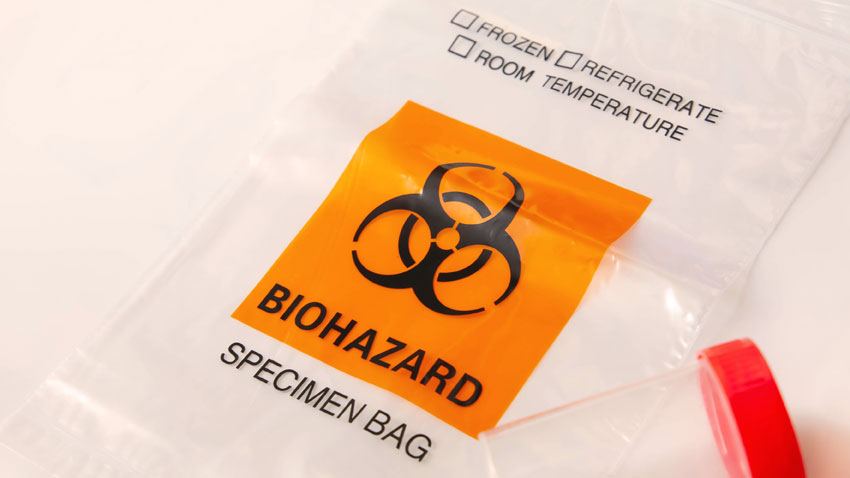Immune-mediated hemolytic anemia (IMHA) is a relatively common life-threatening condition seen in small animal practice. Dogs are far more commonly affected than cats.
Successful management begins with a thorough assessment of the patient to characterize the anemia by eliminating non-hemolytic causes of anemia from the differentials. The patient should also be evaluated for underlying disease (such as infectious disease, neoplasia, vaccines, toxins, drugs) that may be a trigger for a secondary immune-mediated process. If found, an underlying condition must also be treated as part of overall IMHA therapy.
Diagnosis of IMHA
Findings that support a diagnosis of hemolytic anemia include:
- Presence of a regenerative anemia, unless early (initial 3 to 5 days) in the course of the anemia or immune destruction of red cell precursors at the level of the bone marrow;
- Presence of autoagglutination; and
- Evidence of hemolysis (hemoglobinuria, hemolyzed serum, hyperbilirubinemia) or red blood cell injury (spherocytes in dogs only).
Leukocytosis with neutrophilia and elevated liver enzyme levels are often present.
Clinical assessment of the IMHA patient should include:
- A complete history (including vaccinations, medications, supplements, flea-tick prophylaxis, travel history/ infectious disease exposure, toxin exposure)
- Physical examination
- CBC
- Reticulocyte count
- Agglutination testing
- Serum chemistry
- Urinalysis +/- urine culture
- Abdominal and thoracic imaging
- Cytology of masses or abnormal tissues
- Infectious disease testing appropriate for the species of patient and potential exposures.
Treatment of IMHA
Treatment centers on suppressing the immune-mediated injury to red blood cells or their precursors. Corticosteroids remain the mainstay of therapy, but canine dosage recommendations have been modified.
For dogs weighing <25 kg, initial doses of prednisolone or prednisone should not exceed 2 mg/kg/day. Dogs weighing >25 kg, which tend to show more severe side effects including problematic muscle wasting with high corticosteroid doses, should be dosed on a meters-squared basis, with initial doses of 40 mg/m2.
Once-daily dosing is recommended. This recommendation arises from there being no evidence of diminished side effects in dogs receiving half doses administered twice daily coupled with evidence in humans of reduced mineralocorticoid side effects with once-daily dosing.
Dexamethasone IV shows no benefit over oral prednisone/prednisolone. Approximately 80% of canine IMHA patients respond initially to corticosteroids alone.
A second immunosuppressive agent may be added to the regimen if:
- The patient presents with immediately life-threatening disease
- The PCV/Hct does not stabilize during the first 7 days of treatment
- The patient is transfusion-dependent past the first 7 days of treatment, or
- The patient develops severe side effects due to glucocorticoid administration or does not/is expected to not tolerate higher doses due to a co-morbidity, such as diabetes mellitus or hypertension.
Options for a second agent include cyclosporine, mycophenolate, leflunomide, or azathioprine. It is not clear that any of the second agents improve outcomes in dogs with IMHA. Some studies show that azathioprine may result in poorer outcomes than prednisone/prednisolone alone. Because of this and the risk of bone marrow suppression and fatal pancreatitis associated with its use, azathioprine use is not advised despite its relatively low cost compared to other second agents. Cyclophosphamide should not be used to treat dogs with IMHA. Concurrent use of more than two immunosuppressant agents is not recommended.
It is imperative to monitor response to therapy with serial PCV/Hct/CBC and chemistry profiles and to be on guard for adverse effects of the therapeutic agents, including secondary infections as well as individual drug-associated toxicities.
Intravenous administration of human immunoglobulin (IVIG) may be tried as a one-time infusion for dogs not responding to treatment with two immunosuppressant agents, but it is expensive, unproven and considered a salvage therapy not a component of routine treatment. Splenectomy may benefit some patients not responding fully to immunosuppression.
By Marcella Ridgway, VMD, MS, DACVIM-SAIM




